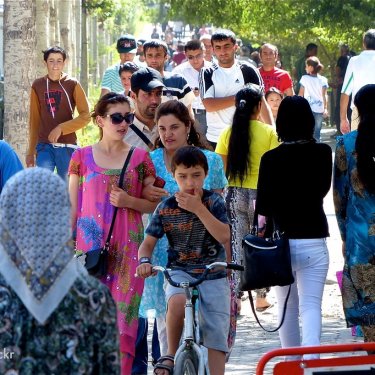Blocking websites benefits no one in Tajikistan

Читать на русском / Read in Russian
Reporters Without Borders (RSF) and the National Association of Independent Mass Media in Tajikistan (NANSMIT) call for an end to website blocking in Tajikistan, where the leading independent news site Asia-Plus has been inaccessible for the past five months and other online resources are subjected to long-term censorship.
Asia-Plus had been censored intermittently for years but this time it has been inaccessible without a break in Tajikistan since 29 November 2018, which is exceptional. As always, the site’s requests for an explanation have been met with stonewalling from the relevant authorities, who deny any censorship and blame “technical problems.”
“The government’s Communication service continues to block news websites in an illegal and arbitrary manner,” NANSMIT chairman Nuriddin Karshiboyev said. “We urge the government to respect Tajik citizens’ constitutional rights and its international obligations as regards the freedom to inform. Thoughtless decisions just increase society’s frustrations.”
Asia-Plus was previously blocked several times in 2018 for periods ranging from a few days to several months. According to its editor, Umed Babakhanov, the current blocking could be linked to Asia-Plus’s refusal to publish articles prepared by the government.
“If this is the case, Tajikistan is undoubtedly the world’s only country where independent websites are blocked for what they don’t publish, not for what they publish,” Babakhanov commented ironically in a recent opinion piece.
Some leading websites such as Ferghana and Akhbor have been inaccessible for several years in Tajikistan, while others have been intermittently inaccessible. The authorities don’t hesitate to block the main social networks and messaging services, or even such major Internet services as Google and YouTube, when they feel the need. The authorities assumed sole control over Internet access in 2018, which allows them to block any online resource without having to enlist the help of Internet service providers.
“Internet censorship is one of the factors behind Tajikistan’s rapid descent in the World Press Freedom Index,” said Johann Bihr, the head of RSF’s Eastern Europe and Central Asia desk. “Blocking independent news sites encourages rumours and the Russian media’s domination in Tajikistan. Who benefits from that? The authorities have just decided against a hike in telecommunications charges. We urge them to show the same common sense by unblocking news sites.”
The big hike in Internet and mobile phone charges that a government agency decreed last month was rescinded by President Emomali Rahmon on 23 April. Tajik charges were already among the world’s highest and the increase had triggered many protests.
Tajikistan is ranked 161st out of 180 countries in RSF’s 2019 World Press Freedom Index.



